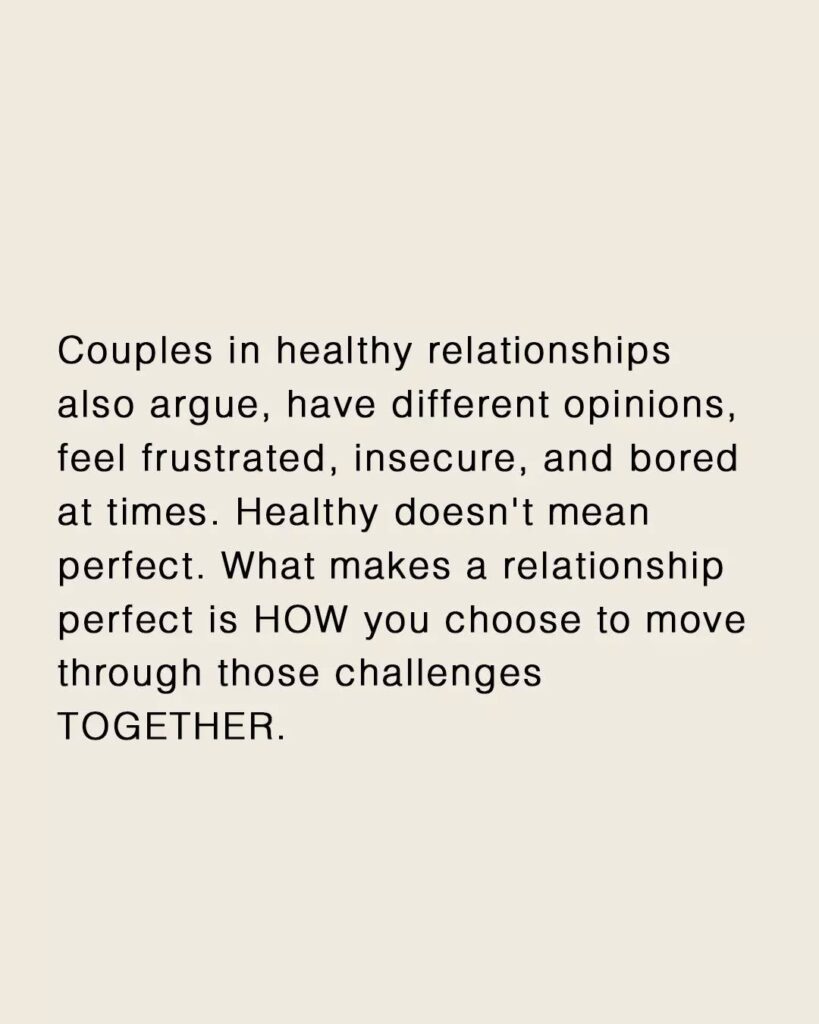In today’s world of social media and romanticized love stories, many people believe that a healthy relationship is one without conflicts, disagreements, or negative emotions. However, this is far from the truth. A truly healthy relationship is not about perfection—it’s about how two people navigate the ups and downs of life together.

Challenges Are a Part of Every Relationship
Couples in healthy relationships experience arguments, disagreements, and moments of frustration. They have different opinions, feel insecure at times, and might even go through periods of boredom. These challenges are natural because no two individuals are exactly alike. Differences in personalities, values, and ways of thinking can lead to conflicts. However, what truly matters is how couples handle these challenges.
A healthy relationship is built on mutual respect, communication, and the willingness to grow together. Conflict is not a sign of failure; rather, it is an opportunity for growth and deeper understanding. When couples learn to communicate effectively and resolve their differences respectfully, their bond strengthens over time.
Healthy Doesn’t Mean Perfect
Perfection is an unrealistic expectation in relationships. The idea that a loving relationship should always be free of conflict can create unnecessary pressure. Real relationships involve moments of struggle, but they also provide opportunities to learn more about each other and develop stronger emotional connections.
Being in a healthy relationship means embracing each other’s flaws and imperfections. It means understanding that both partners are human and will make mistakes. The key is to support each other, forgive when needed, and keep moving forward together.
The Importance of Communication
One of the most significant aspects of a strong relationship is communication. Many misunderstandings and conflicts arise because partners fail to express their feelings, needs, and concerns openly. Healthy couples prioritize honest and respectful communication, even when discussing difficult topics.
Instead of avoiding issues or suppressing emotions, they talk through their problems and seek solutions together. This not only strengthens their bond but also builds trust and emotional security within the relationship.
Working Through Challenges Together
The way couples handle their challenges defines the strength of their relationship. Instead of blaming each other or shutting down during difficult times, healthy couples face their problems as a team. They acknowledge their differences, find compromises, and make efforts to understand each other’s perspectives.
In difficult moments, empathy and patience are crucial. It’s important to remember that both partners are on the same side, striving for a common goal: a happy and fulfilling relationship.
Conclusion
A healthy relationship is not about avoiding conflicts or achieving perfection. It’s about embracing the reality that challenges will arise and choosing to face them together. The ability to navigate difficulties with understanding, respect, and love is what truly makes a relationship strong.
So, instead of striving for an unrealistic idea of perfection, focus on building a foundation of trust, communication, and resilience. At the end of the day, a great relationship is not about being perfect—it’s about growing, evolving, and overcoming obstacles as a team.



